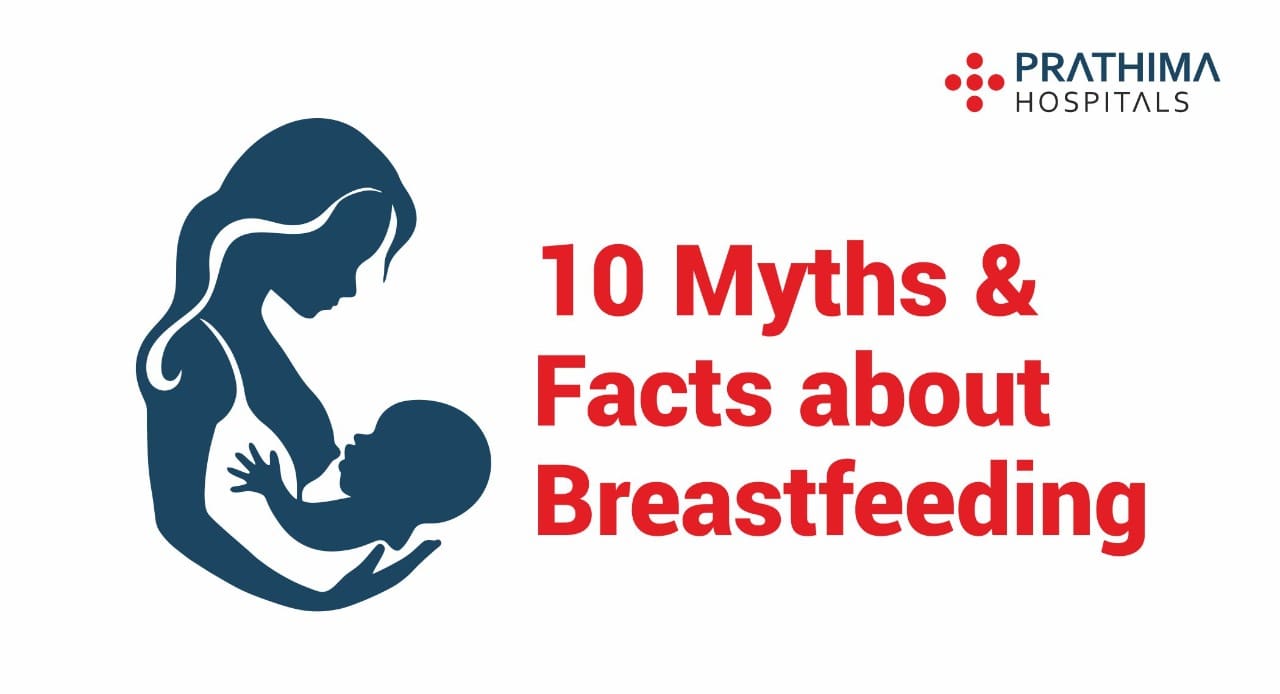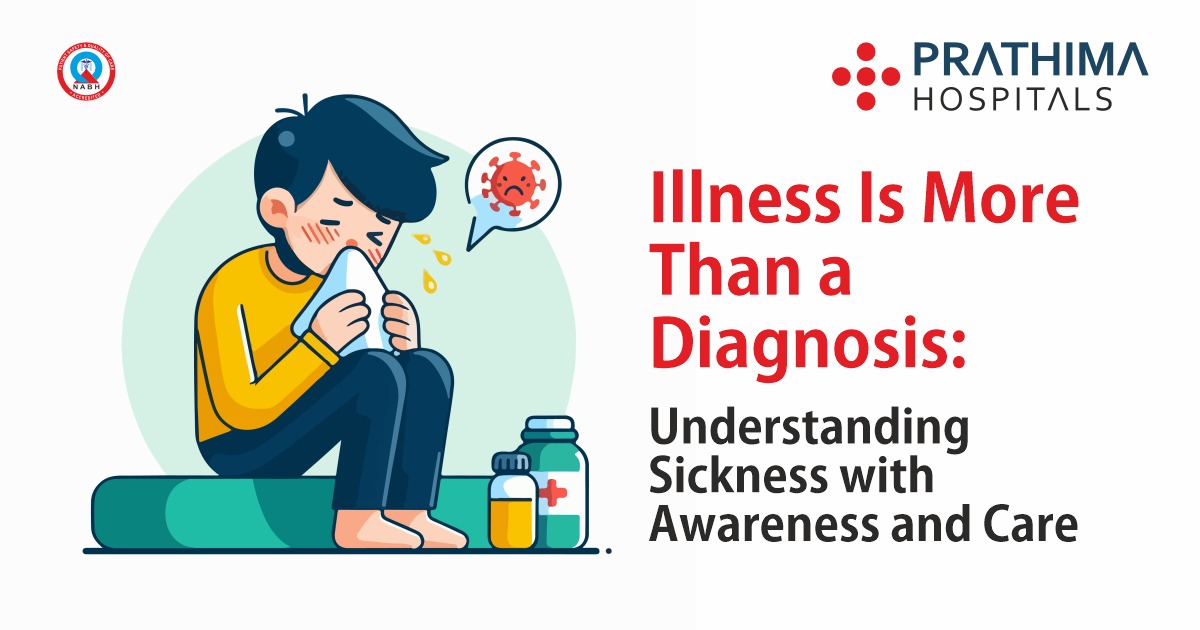10 Myths and Facts about Breast Feeding

10 Myths and Facts about Breast Feeding
Motherhood is an upheaval of emotions and advice. The pregnant females are inundated with tons of advice leaving the poor female confused. The worst nightmare is that this unsolicited guidance does not cease immediately after delivery. The rocket of messages hit the women more after delivery. How to breastfeed? How many times to feed the baby? ” Your baby is cranky all time, you should feed him often, These are many questions and advice all moms are tired of hearing.
So to bust myths about breastfeeding we have jotted out points to be remembered in this write-up. Below is a questionnaire about the unasked queries of a new mom about breastfeeding. We hope it benefits the masses.
1) I am a new mom, what does nutrition one should take during breastfeeding?
Facts about Breast Feeding mothers should enhance the intake of foods rich in Vitamin A, C thiamine, B 6, B 12, iodine. Dietary supplements will benefit new mothers as well as their babies. Foods like dried coconut, fennel seeds, garlic, oatmeal, sesame seeds, lactational cookies help in increasing milk supply. Take a properly balanced diet.
2) Why is Breast milk considered Golden Milk?
Immediately after labor, your breast milk is yellowish and sticky. The milk is called colostrum which is secreted in the first week of delivery. Colostrum is rich in protein, Vitamin A, and anti-infective properties which are important against neonatal infection. It helps to fight against respiratory infections, leukemia, diabetes, and congenital diseases. It helps to enhance the cognitive development of the baby. Breast milk contains Vitamin C to boost immunity and hence help in the resistance of disease. The lactating mother requires an additional 500kcal for the first six months and 400 kcal of energy for the next six months. A balanced diet allows you to meet the higher energy demand while you facts about breast feeding. On average 100ml of human milk gives 70kcal of energy.
3) I am suffering from COVID-19. Can I still breastfeed my baby?
According to WHO, there is less evidence of Coronavirus being transmitted from mothers’ milk.
Hence New moms can breastfeed their baby with precautions as per ICMR guidelines. Lactating mothers are advised to use the mask before feeding the newborn. Clean and sanitize your hands before touching your little bub. Avoid loitering and gatherings. Your baby’s safety is in your hands. Maintain social distancing for the same. Consult your doctor If you have any doubts about the same.
4) What are the key points to be remembered while breastfeeding?
Drink an ample amount of water, milk, and fruit juices, beans, lentils, fish, and poultry items.
Your energy requirements increase so increase your food intake that meets all your nutritional requirements.
- Avoid intake of empty-calorie food to the minimum.
- Eat lactation cookies.
- Take proper rest
- Nurse on both sides will stimulate milk production.
- Take a properly balanced diet.
- Consult a lactation counselor for the same.
5) How to manage weight after childbirth?
Many women start an unhealthy diet after pregnancy. During the first six months after delivery, the baby depends on the mother for nutrition. Hence it is mandatory on the women’s side to eat healthily.
- Breastfeed till 6 months it will help in reducing weight.
- Increase fiber-rich food including apples, pears, plums, berries, legumes, broccoli, peas, brown rice, barley, beans, and chickpeas
- Your baby depends on you for nutrition, so manage with a calorie-rich diet. Don’t start fad diets initially. A well-balanced diet will help in increase of facts about Breast Feeding milk too.
- Curtail your carb intake.
- Exercise. Stay active.
- Stay hydrated
- Avoid junk food.
6) What are the super foods to increase milk supply?
- Coconut helps in increasing milk production. Eat coconut laddoos and sweets.
- Fennel seeds increase milk supply and reduce gas and colic.
- Increase the intake of green leafy vegetables.
- Oatmeal is a great source of energy and prevents constipation.
- A well-balanced diet both during pregnancy to boost breast milk
- Protein requirement during lactation is minimum, but if energy is low protein will be used for energy production
- Decrease protein will lead to a reduction of Casein
- Casein protein provides calcium and phosphate to the baby. Hence include fish, eggs, milk in your diet.
The more the baby nurses the more milk you will produce.
7) Can a breastfeeding mother get a vaccination against Covid 19?
Yes according to ICMR guidelines every breastfeeding mother should get a jab of the Covid 19 vaccine.
8) Is breastfeeding unbearable?
Breastfeeding should not be uncomfortable, although there may be initial discomfort as mom and baby get the hang of it.
9) How can I tell if my baby is eating enough?
A breastfed newborn baby should nurse at least 10-12 times per day.
10) What Can I Do About Sore Nipples?
In addition to making sure that your baby is latching well, you can: Change breastfeeding positions. Manually express some breast milk and rub it on your sore nipples. Let your nipples air-dry after nursing. Don a soft cotton shirt and avoid tight-fitting shirts and bras.
Here are some commonly asked questions asked by new breastfeeding moms. Please support them. The journey of facts about Breast Feeding isn’t easy though it is a superpower. Encourage mothers to breastfeed as it’s the right of every child.
Need any medical assistance?
Consult our Experienced Gynecologists’ at Prathima Hospitals, Hyderabad.






Warning: Undefined variable $req in /home/u885608126/domains/prathimahospitals.com/public_html/wp-content/themes/prathimahospitals/functions.php on line 294
Warning: Undefined variable $commenter in /home/u885608126/domains/prathimahospitals.com/public_html/wp-content/themes/prathimahospitals/functions.php on line 295
Warning: Trying to access array offset on value of type null in /home/u885608126/domains/prathimahospitals.com/public_html/wp-content/themes/prathimahospitals/functions.php on line 295
Warning: Undefined variable $aria_req in /home/u885608126/domains/prathimahospitals.com/public_html/wp-content/themes/prathimahospitals/functions.php on line 295
Warning: Undefined variable $req in /home/u885608126/domains/prathimahospitals.com/public_html/wp-content/themes/prathimahospitals/functions.php on line 298
Warning: Undefined variable $commenter in /home/u885608126/domains/prathimahospitals.com/public_html/wp-content/themes/prathimahospitals/functions.php on line 299
Warning: Trying to access array offset on value of type null in /home/u885608126/domains/prathimahospitals.com/public_html/wp-content/themes/prathimahospitals/functions.php on line 299
Warning: Undefined variable $aria_req in /home/u885608126/domains/prathimahospitals.com/public_html/wp-content/themes/prathimahospitals/functions.php on line 300
Warning: Undefined variable $commenter in /home/u885608126/domains/prathimahospitals.com/public_html/wp-content/themes/prathimahospitals/functions.php on line 303
Warning: Trying to access array offset on value of type null in /home/u885608126/domains/prathimahospitals.com/public_html/wp-content/themes/prathimahospitals/functions.php on line 303